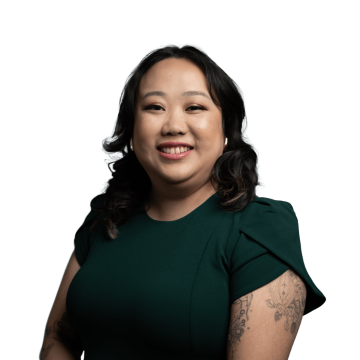Jouapag Lee
2024 Bush Fellow

Jouapag Lee wants to help Hmong people heal from intergenerational trauma and foster healthy family and community connections. Inspired by her upbringing as the oldest child of Hmong refugee parents, her work is focused on freeing her community from unjust systems of oppression and creating spaces that elevate collective wellbeing. After losing her own mother and grandmother, while becoming a mother herself, Jouapag took time to consider what true healing means. She became a founding member of the Hmong Healers Collective to share practices for healing within her community. Now, her vision for change is growing. She hopes to create a culturally grounded space for Hmong American millennials to learn the histories of oppression and trauma and explore what collective healing could look like in their community. She believes reaching millennials is key to bridge the gap between ancestral and modern healing. Through the Bush Fellowship, she will seek a trauma-informed coaching certificate, strengthen her written Hmong language skills, work with a coach to develop sustainable business practices and travel to Laos and Thailand to further connect with her Hmong roots.
What has informed your approach to leading change in your community?
My experiences as the oldest daughter in a Hmong family led me to social justice advocacy work and student organizing in college. Later, as I learned more about the interconnection between oppression and trauma, my vision for community change expanded. I began to think about how healing and justice for individuals and families can ripple out into entire communities. This is how my interest in community change work started and this is what informs my approach.
What advice would you give other leaders who hope to impact the community?
Trust your vision and trust that there are other people who have been waiting to hear your story.
What is your favorite quote or expression?
Lama Rod Owens is a Black queer Buddhist teacher who said, “We harbor ancestral memories of what it has meant for our people to make a way out of no way. My ancestry has taught me to look deeply into this period and understand that there is potential for not just surviving but flourishing.” I believe our ancestors were brilliant people who gave us unlimited ways to heal; and claiming our ancestral and cultural ways of healing are powerful ways to disrupt oppression and domination.